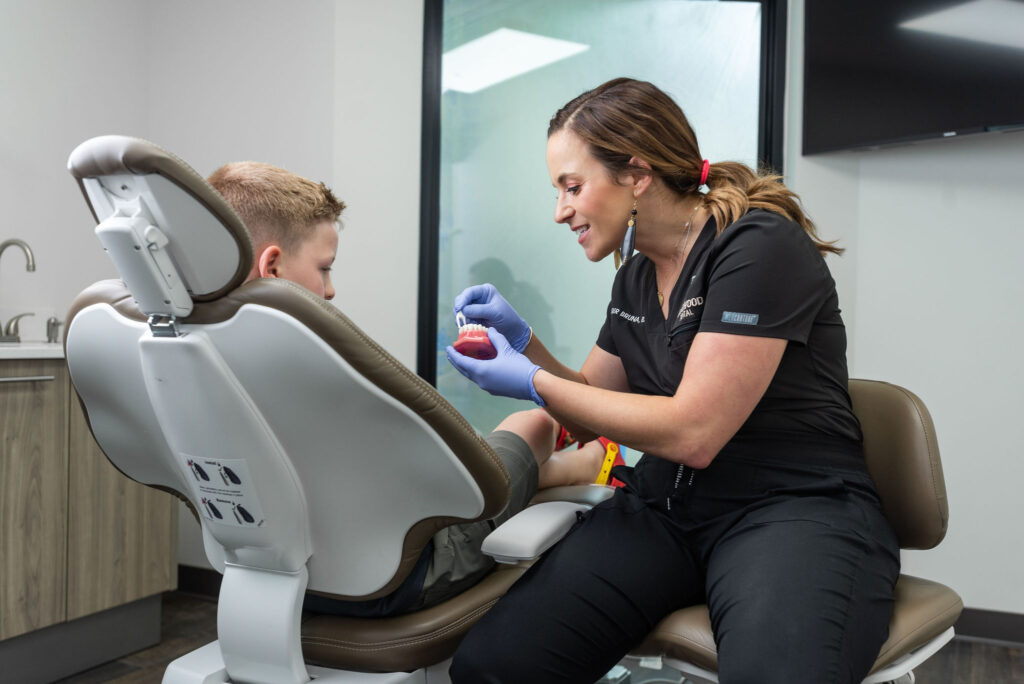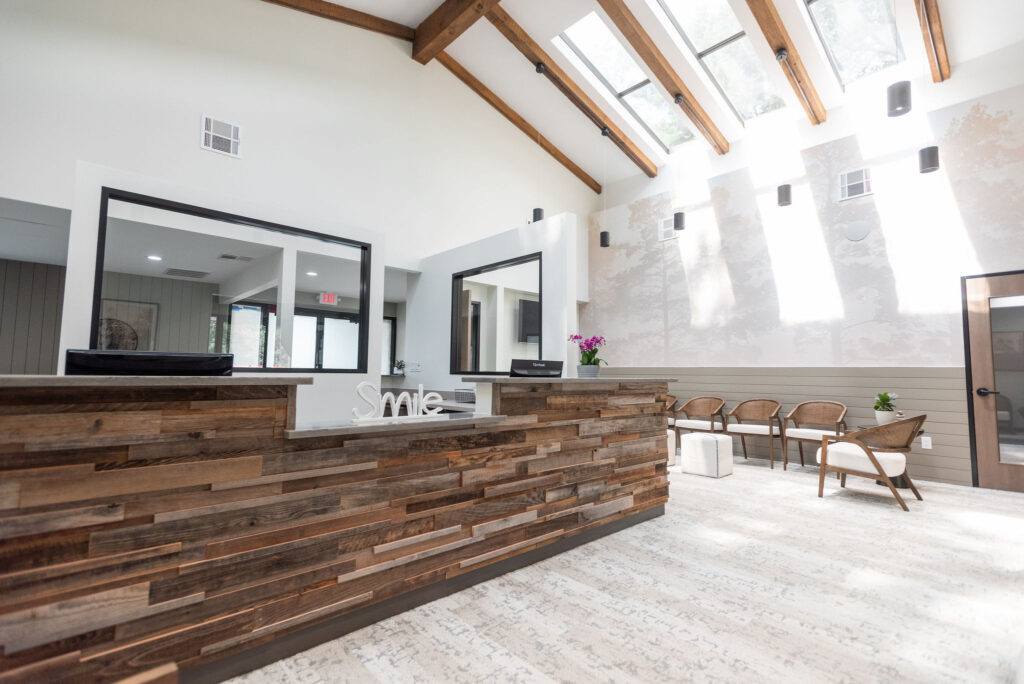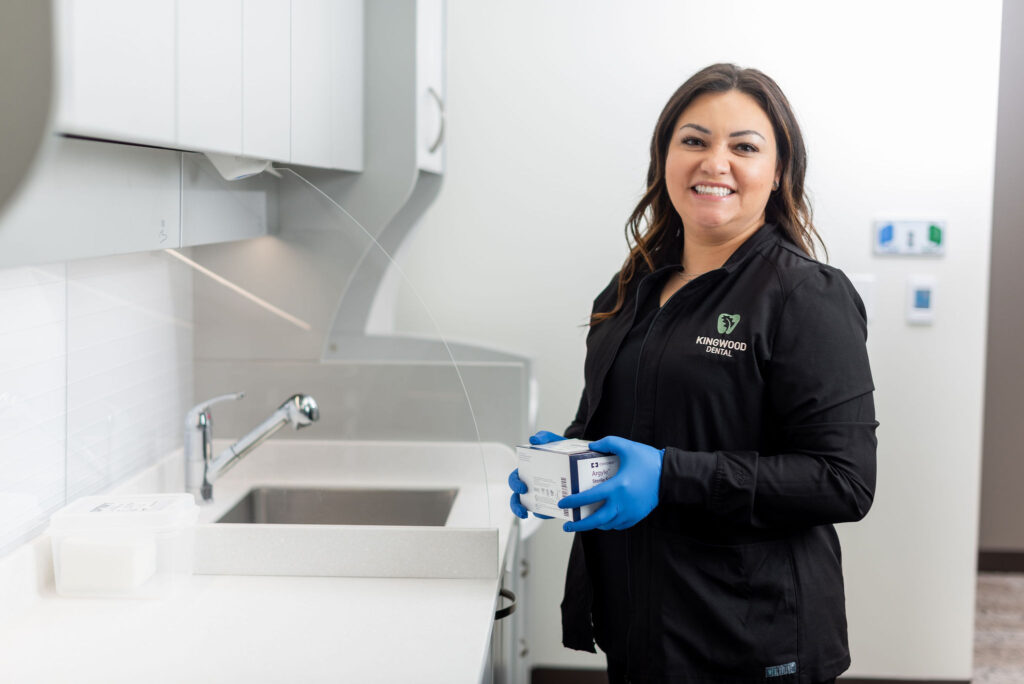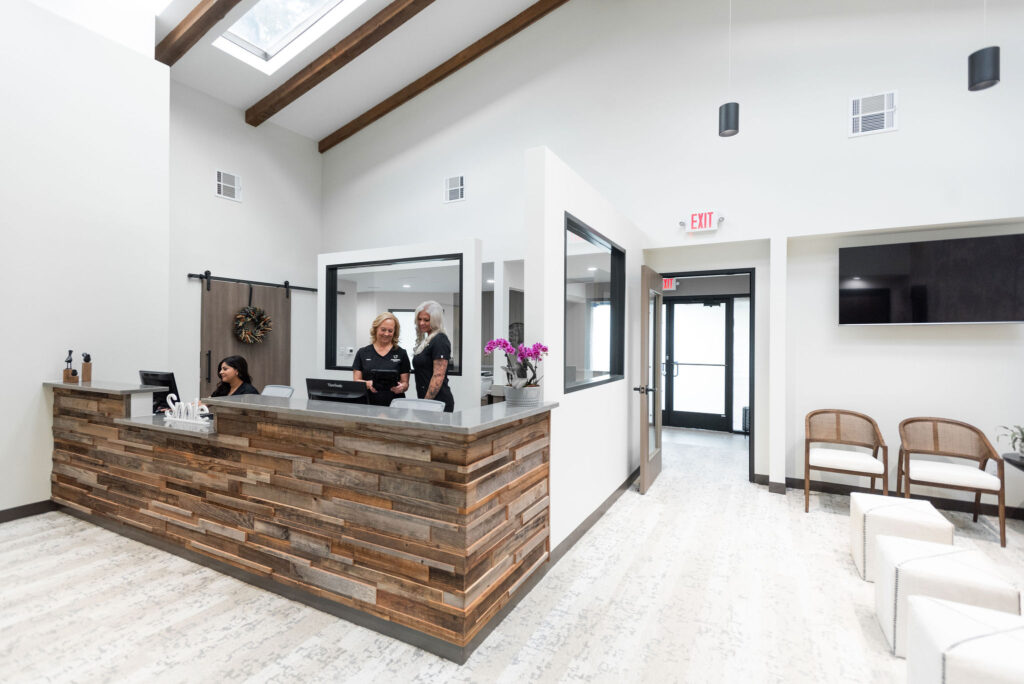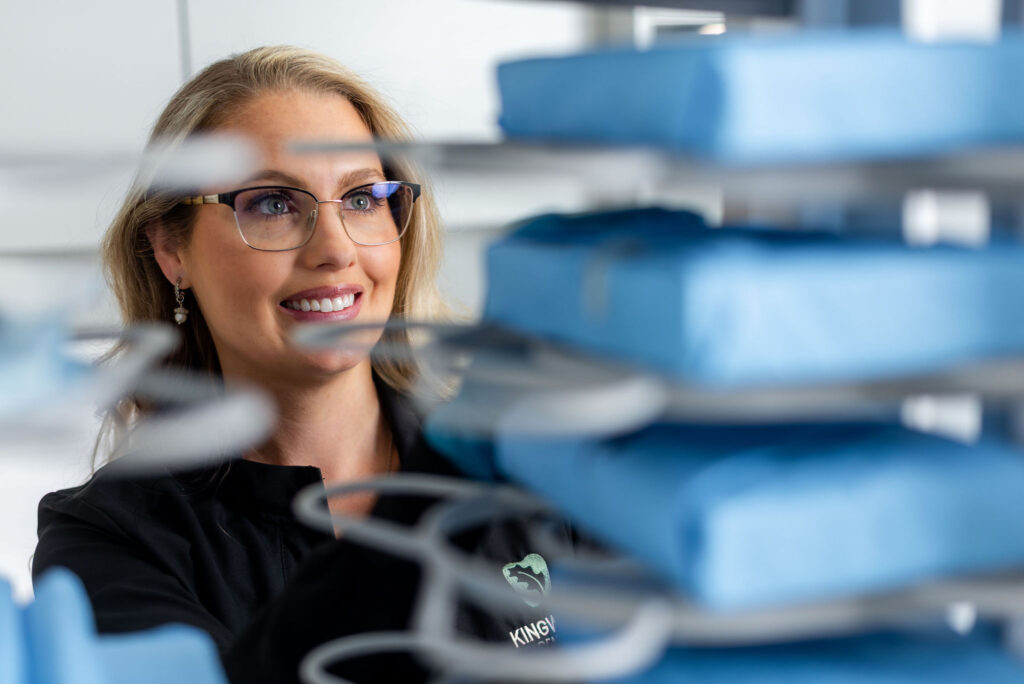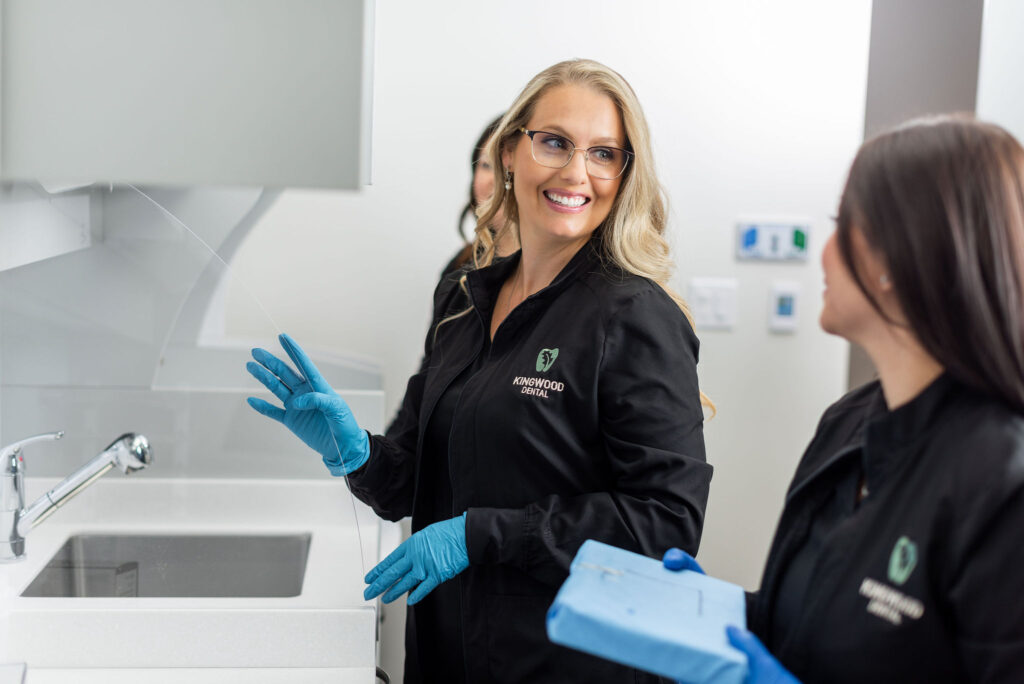What Are Porcelain Veneers?
Your smile is one of the first things people notice when they meet you. Dental veneers help enhance your smile. They are an excellent option to address a variety of physical and aesthetic dental issues.
Dental Veneers
A dental veneer is a permanent modification used to correct tooth imperfections, including stained or chipped teeth. Made from thin porcelain or composite resin coverings, veneers are bound to the front surface of your tooth using dental cement.
Because veneers are permanent, it is important to be educated on the process and review the advantages and disadvantages before moving forward with the procedure.
Advantages
- Whiter Teeth
Drinking coffee, smoking cigarettes, or consuming pigmented foods and beverages over time can turn your teeth to an unappealing yellow or brownish shade. You can use bleach or whitening treatments for stained enamel, but it can quickly become stained again. Dental veneers can be an easy and quick method to correct the color of your teeth. Veneers are typically stain-resistant, meaning you do not need to worry about discoloration or future whitening.
- Repair Minor Cosmetic Issues
Veneers may be used to fix chips, cracks, gaps, minor misalignment, and discoloration.
Veneers are attached to the teeth' front surface, so while they do not adjust the position of your teeth, they can camouflage minor orthodontic issues. The natural teeth may still have a gap or be crooked; however, no one other than your dentist will ever know.
Veneers can't always replace orthodontic treatment, and your dentist may refer you to an orthodontist instead of placing veneers.
- Damaged Enamel Replacement
While tooth enamel is durable, it is not indestructible. The enamel can be worn down over time from aggressive tooth brushing or damaged from acidic foods and drinks. The stomach acid from acid reflux disease can also be damaging to your enamel. Damaged enamel can be concerning as it does not grow back. Fortunately, you can cover damaged enamel using veneers.
Disadvantages
- Expensive
The price of veneers can vary based on your geographical location. Other factors, such as how many teeth are being restored, also impact the procedure; however, veneers are expensive. The average cost of a single veneer is about $1,300. Because veneers are considered a cosmetic procedure, usually not covered by insurance.
- Sensitivity
Some people experience an increased level of tooth sensitivity after receiving veneers. The American Academy of Cosmetic Dentistry reports that you may feel added sensitivity to hot or cold temperatures for a few days following the procedure; however, it typically goes away. Tooth sensitivity is uncomfortable and inconvenient but can usually be managed.
- Permanent
To properly place the veneers, your dentist will need to modify the structure of your natural teeth. You cannot restore the enamel, which is removed before the placement, making the procedure permanent. It is important to note that most veneers eventually need to be replaced over time. On average, they last for about ten years.
Dental veneers are an excellent method to cover discolored, crooked, or damaged teeth. It is helpful to review the pros and cons before moving forward. Schedule an appointment with your dentist to determine if you are a good candidate for using dental veneers to improve your smile.
More on Dental Veneers : How Long Do Dental Veneers Last?



